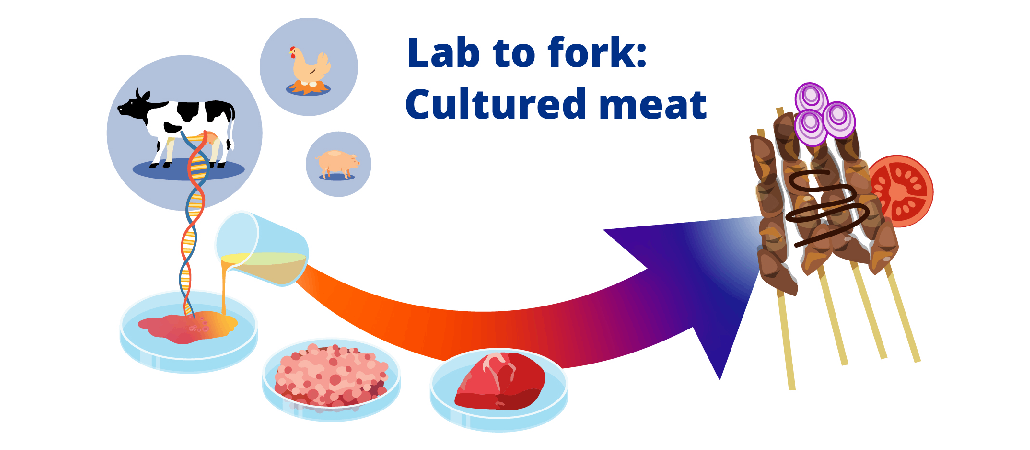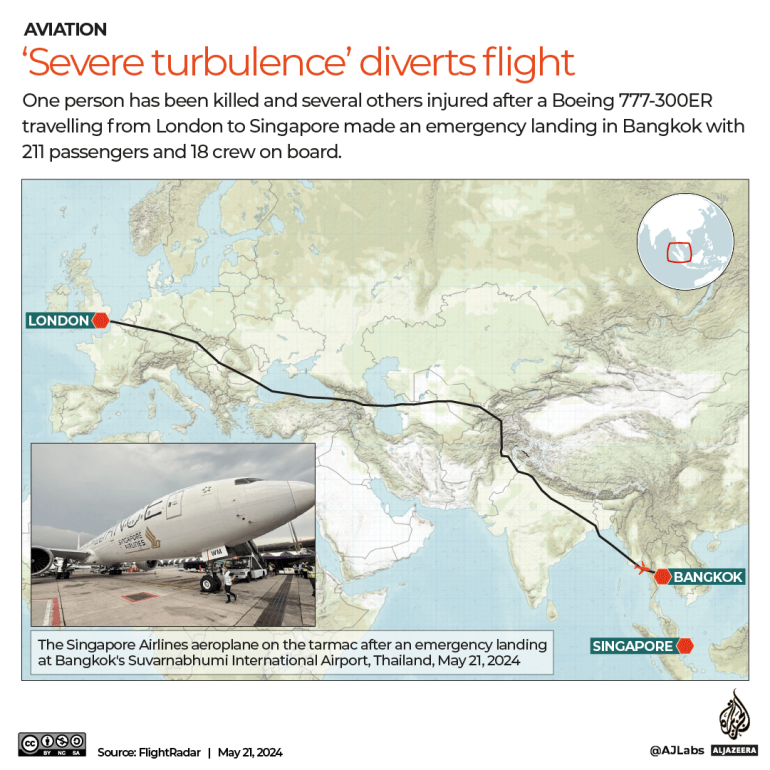The current Covid-19 situation has brought the issue of food security into sharper focus. Here’s how A*STAR and the Singapore Food Agency are driving R&D efforts to strengthen the country’s food safety and supply.
Having to import more than 90 per cent of its food for its population of almost six million, land-scarce Singapore is subjected to the volatilities of the global food market, including export bans and disruptions to transport routes.
The current Covid-19 situation has brought the issue of food security into sharper focus.

Amid working hard to ensure our food supply continuity as countries shut down their borders, Singapore has also set its sights on raising its local food production over the next 10 years.
The “30 by 30” goal — to produce 30 per cent of Singapore’s nutritional needs locally by 2030 — aims to increase the cultivation of vegetables and boost the production of protein sources to strengthen the resilience of Singapore’s food supply, up from less than 10 per cent today.
This is driven by the Singapore Food Agency (SFA), which consolidates oversight of Singapore’s food safety and food security.
To help achieve the “30 by 30” goal, $144 million of research funding has been made available under the Singapore Food Story R&D Programme, led by SFA and the Agency for Science, Technology and Research (A*STAR). This will enable R&D in sustainable urban food production, future foods, and food safety science and innovation.
To further strengthen Singapore’s food security, SFA has also established a $30 million “30×30 Express” grant to support local farmers to ramp up local production of eggs, vegetables and fish over the next six to 24 months.
Where Singapore lacks in space, it makes up for in research and development (R&D), innovation and technology.
Working closely with other agencies including SFA and complementing work from institutes of higher learning, A*STAR recently established the Singapore Institute of Food and Biotechnology Innovation (SIFBI) to bring its food science research under one roof and create a synergistic platform to build on collaborations and better facilitate economic value capture for Singapore’s food ecosystem.
SIFBI aims to strengthen the agri-food ecosystem and support the “30 by 30” goal through making ingredient production and food manufacturing more sustainable, eco-friendly, cost-efficient and productive, as well as creating safer, healthier high-value products and solutions.
The institute looks at areas such as alternative proteins as a meat replacement, fermentation process to create flavourful compounds and process engineering to optimise food production, and also conducts research on food safety, how food structure and ingestion patterns impact nutritional absorption and human health, as well as formulation studies to develop healthy food products.
Leveraging biotechnology — the process of using biology (fermentation as an example) to create products and services — SIFBI can develop various tools and processes that enhance the food manufacturing system in Singapore.
It also works with partners to nurture talent, as well as deepen and embed technologies in transforming the food industry and capturing new growth opportunities in the market.
AGRITECH INNOVATION
Last November, Dr Koh Poh Koon, then Senior Minister of State for Trade and Industry, announced that an Agri-Food Innovation Park (AFIP) would be established for high-tech farming operators to use as a testbed and commercialise their technologies.
AFIP is a pilot cluster to catalyse innovation in the agri-tech ecosystem. It will be ready to welcome companies by 2021.
In a Committee of Supply debate in Parliament on March 3, Dr Koh said AFIP would allow the Government to review more regulations in a more streamlined manner and that the lessons learnt could be extended to benefit the farming industry.
Biotransformation, the process of creating substances and compounds sustainably through biotechnology instead of traditional farming, is a potential game changer that could contribute towards the “30 by 30” goal.
It uses advanced metabolic engineering capabilities to design microorganisms for efficient production of proteins and food ingredients. This innovative process has a low environmental footprint and is resource-efficient, climate-resilient and productive.
SIFBI has partnered with local start-up Eatobe to develop food products that help the body absorb nutrients more efficiently from whole foods, such as grains, nuts and vegetables. The success of the projects led to Eatobe accelerating its R&D and producing its prototype six months into the collaboration. Eatobe also successfully secured grants and investments with the technology developed during the partnership.
Dr Hazel Khoo, executive director, SIFBI, A*STAR, said: “The Asian phenotype differs from the West’s, so there is a need to look at not just food production, but also the nutrition content and associated health benefits for Asians. This is where Singapore can set itself apart and be a leader in innovation.”
PREPARING CELL CULTURE
Novel food is one way to reduce the impact of our dietary and consumption habits on the planet, and shift towards a more sustainable model.
01. Cell lines
Animals must be of good breeding stock, and cell extraction and storage are carefully monitored.

Cell culture starts with the extraction of cells from plants or animals of good breeding stock. GRAPHICS: A*STAR
02. Culture media
The culture media that the cells are grown in is consistently monitored for purity. It is then removed from the final product.

The culture media that cells are grown in is monitored carefully to ensure an optimal environment.
03. Genetic purity
Genetic fidelity and stability are kept as close to the original meat as possible and any differences are evaluated for safety.

The genetic purity and stability of cells are kept as close as possible to that of the original meat.
FUTURE FOODS
Looking towards the future, there are many motivations to continue investing in food research.
01. Ethically-produced food
As consumers become more conscious of the ethics involved in obtaining food, certain novel foods provide an ethical alternative.

Novel foods can offer an ethical alternative for consumers.
02. Designer food for Asians
The ability to design the nutritional aspects of our food means that they can be tailored to our health requirements.

Designer foods can be fortified with ingredients tailored to consumers’ health requirements.
03. Enhancing food resilience
Changes to how we grow food mean that we can increase the yield of food production, especially in countries like Singapore where land is a hotly-contested resource. Increasing food production will help mitigate our reliance on imports and also serve as a buffer during supply disruptions to import sources.

New ways of growing food may game-change food security for countries like Singapore.
4. Environmental sustainability
Obtaining food from sustainable sources will reduce the impact our consumption has on the environment. This can slow down or maybe even prevent the depletion of natural resources.

Sustainable, resource-efficient consumption practices can help to reduce our environmental footprint.
SAFETY OF NOVEL FOOD
As novel foods do not have a history of being consumed by humans as food, their process and product safety need to be assessed before they are allowed to be sold in Singapore.
Items up for scrutiny include materials that go into manufacturing, such as the type of cells, growth media and scaffolding materials for cultured meats/seafood, and how manufacturing processes are controlled to manage food safety risks.
Food traders who intend to use or sell novel food ingredients are required to submit an application to SFA by providing a safety assessment for SFA’s review.
The assessment covers food safety issues such as potential toxicity, allergenicity, safety of production methods and dietary exposure. On cultured meats/seafood, very detailed information on the overall manufacturing process, materials and products is required.
SIFBI’s food and chemical safety research helps boost the science of chemical safety assessment with fit-for-purpose non-animal tools.
It works with local and international regulators, institutes of higher learning and industry to develop and accelerate the adoption of novel approaches for predictive toxicology, and promote the acceptance of 21st-century risk assessment practices.
The Singapore Institute of Food and Biotechnology Innovation (SIFBI) is a research institute that brings together A*STAR’s research capabilities in areas such as food, nutrition, public health, biotechnology, manufacturing, agri-food technology, and safety research under one roof.










